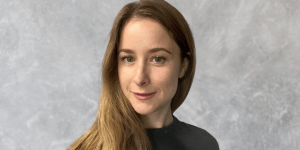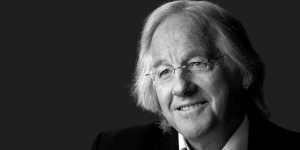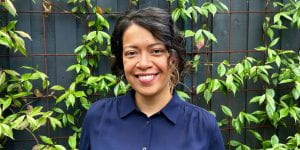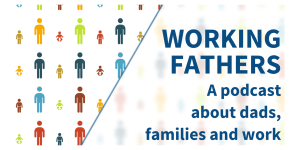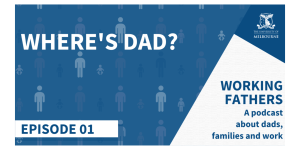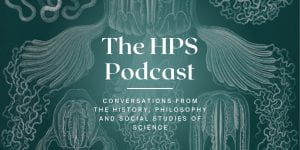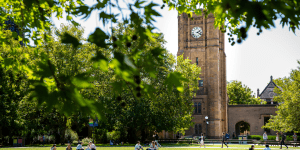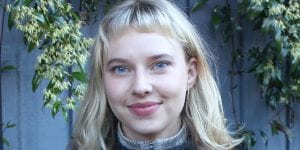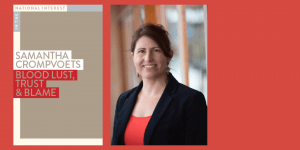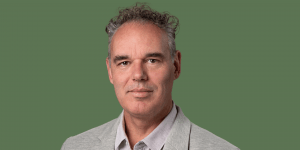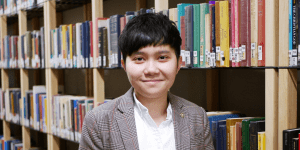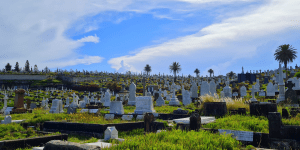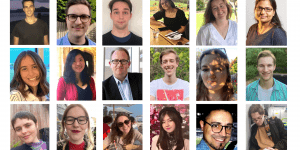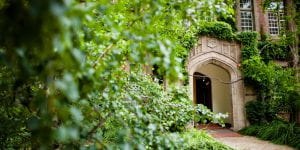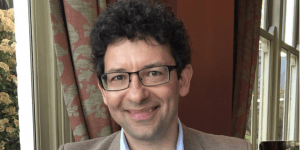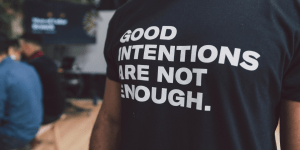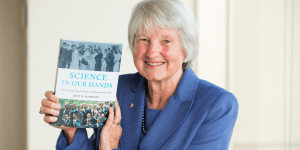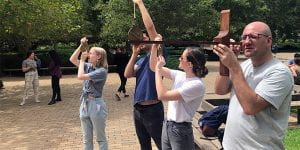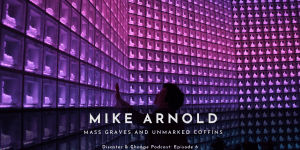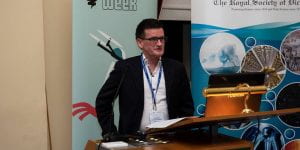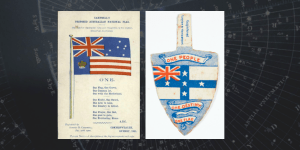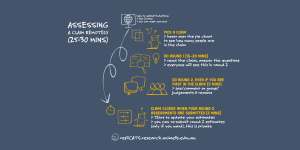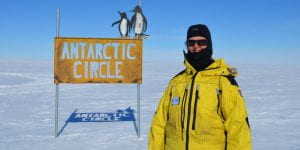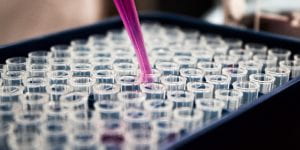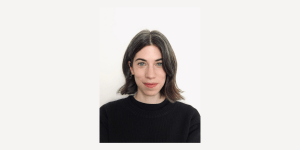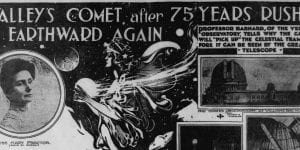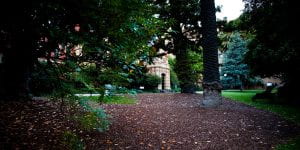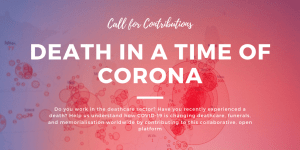Category: History & Philosophy of Science
-
Koyré Medal for Emeritus Professor Rod Home
In 2025, at the International Congress of History of Science and Technology in Dunedin, it was announced that Emeritus Professor Roderick Home had been awarded the prestigious Alexandre Koyré Medal by the International Academy of the History of Science. The medal, one of the highest honours in the discipline, recognises a lifetime of outstanding scholarly […]blogs.unimelb.edu.au/shaps-research/2025/12/16/koyre-medal-for-emeritus-professor-rod-home
-
Investigating the History of Women in Australian Engineering
This year we welcomed to the History and Philosophy of Science Program new graduate student, Kathryn Laurentis, who joins us with more than twenty-five years of industry experience as a chemical engineer and applied mathematician. Her research will draw on her experience in industry as well as STEM advocacy to explore the hidden history of […] -
Meet Dr Cristian Larroulet Philippi, RW Seddon Fellow in Philosophy of Science
This year, we were delighted to welcome Dr Cristian Larroulet Philippi as the inaugural RW Seddon Fellow in the History and Philosophy of Science program. With a background in economics and a PhD in History and Philosophy of Science from the University of Cambridge, Dr Larroulet Philippi was previously a Junior Research Fellow at Gonville […] -
A Century of Planetariums
For 100 years, we have marvelled at planetariums. In this article, originally published by the Conversation, Dr Martin Bush (Senior Lecturer in History and Philosophy of Science) and Dr Tanya Hill (Honorary Fellow at the University of Melbourne and Senior Curator (Astronomy), Museums Victoria Research Institute) present a brief history of how humans brought the […]blogs.unimelb.edu.au/shaps-research/2025/06/23/a-century-of-planetariums
-
Why do women still have less status and power than men?
In her new book, Patriarchy Inc., Professor Cordelia Fine (HPS) makes the case for a new approach to gender equality in work – one that’s fairer, more secure, and more rewarding for all of us. What’s your vision of gender equality? Whatever it is, it needs to take a stand on divisions of labour. Work […] -
Neuroscience and Gender Politics
Last year, students taking the subject ‘Sex and Gender in the Sciences’ took direct part in the public debates over neuroscience and gender politics. Led by Professor Cordelia Fine (HPS), the students held a focused class discussion on sensationalised research findings comparing female and male brains. Later, the students co-authored a statement on this issue, which was […]blogs.unimelb.edu.au/shaps-research/2025/04/29/neuroscience-and-gender-politics
-
HPS Podcast: Martin Bush on Images and Science
How does science move from the lab into the public sphere? What is the role of the public arena in the creation and distribution of knowledge? And how do we use imagery to augment our creation and circulation of scientific knowledge? Dr Martin Bush (History & Philosophy of Science) discusses these questions in this episode […]blogs.unimelb.edu.au/shaps-research/2024/07/22/hps-podcast-martin-bush-on-images-and-science
-
HPS Podcast: Samara Greenwood on Social Change and Science
Samara Greenwood is currently undertaking a PhD in the History and Philosophy of Science (HPS), in which she investigates the various ways in which changes in society can impact science. In this episode of The HPS Podcast, Samara discusses some of the controversies of drawing connections between social and political contexts and scientific change, including links between second wave feminism and […] -
Introducing Dr Kate Lynch, Lecturer in Philosophy of Science
We are excited to announce the appointment of Dr Kate E Lynch as Lecturer in the History and Philosophy of Science (HPS). Dr Lynch is a philosopher of science and a biologist, whose work brings together philosophical analysis and empirical investigation. She is also a talented science communicator with a keen interest in engaging the […] -
Professor Mike Arnold: A Vote of Thanks
Professor Michael (Mike) Arnold recently retired as head of SHAPS’s History & Philosophy of Science Program. His longtime colleague, Emeritus Redmond Barry Distinguished Professor, Janet McCalman, AC, reflects here on Mike’s career and legacy. Mike Arnold has retired from History & Philosophy of Science, leaving it, the social sciences, the university and, indeed, the world, […]blogs.unimelb.edu.au/shaps-research/2024/02/26/professor-mike-arnold-a-vote-of-thanks
-
Feminist Critiques of Sex Difference Research
Feminist critics of sex difference research are often accused of claiming there are no sex differences, or that sex hormones have no influence on human behaviour. In this episode of the HPS Podcast, Professor Cordelia Fine joins Samara Greenwood to talk us through why this is a false characterisation. Instead, feminist researchers are digging into […]blogs.unimelb.edu.au/shaps-research/2024/01/16/feminist-critiques-of-sex-difference-research
-
Our Mental Health Has Gone Digital
Apps, wearables and ingestibles that support digital mental health have lowered barriers to access but have profound social, ethical, and legal implications. In this extract from her new book, The Artefacts of Digital Mental Health, and republished here from Pursuit, Dr Jacinthe Flore (HPS) new digital mental health technologies and their impact. In April 2022, The […]blogs.unimelb.edu.au/shaps-research/2023/12/20/our-mental-health-has-gone-digital
-
Remembering and Forgetting the Dead
Ancient Celtic Halloween – or All Hallow’s Eve – was a day to acknowledge the dead. Modern rituals of marking death continue this tradition, both remembering and letting go. In this article, republished from Pursuit, two of the DeathTech Research team –SHAPS’s Mike Arnold, together with Tamara Kohn (School of Social and Political Sciences) – discuss […]blogs.unimelb.edu.au/shaps-research/2023/10/30/remembering-and-forgetting-the-dead
-
Welcome Dr Jacinthe Flore, Lecturer in History and Philosophy of Science
We are excited to welcome Dr Jacinthe Flore as SHAPS’s new Lecturer in History and Philosophy of Science. Dr Flore is a Science and Technology Studies (STS) Scholar and a Historian of Medicine, who combines the Medical Humanities, STS and critical theory in her research. She has published widely on the history and application of […] -
On Biography and the History of Medicine
Dr Fallon Mody in conversation with PhD candidate Samara Greenwood, for the HPS Podcast.blogs.unimelb.edu.au/shaps-research/2023/08/17/on-biography-and-the-history-of-medicine
-
Reflecting on the Nature of Science
Dr Kristian Camilleri (HPS) in conversation with PhD candidate Samara Greenwood, for the HPS Podcast.blogs.unimelb.edu.au/shaps-research/2023/07/24/reflecting-on-the-nature-of-science
-
Working Fathers Introduction
Welcome to Working Fathers, a podcast about dads, families and work. We look at the many different roles fathers play in contemporary Australian families and society and how policy can better recognise, value and support. Listen to the podcast via the links to each episode found below, or on your preferred podcast provider. The creators […]blogs.unimelb.edu.au/shaps-research/2023/07/17/working-fathers-introduction
-
Working Fathers: Episode 1
Our starting point is the large gender gap in time spent directly caring for children in economically developed and relatively gender egalitarian societies like Australia. Things aren’t what they were 50 years ago. Mothers, particularly of younger children, are more likely to do paid work than they were in the past. But it’s still quite […]blogs.unimelb.edu.au/shaps-research/2023/07/17/working-fathers-episode-1
-
Working Fathers: Episode 2
The family as an institution has changed significantly across time and place. How people divide labour within and beyond the family unit has been in flux throughout human history. The current model of fatherhood in many Western nations, including Australia, is a modified version of what we usually call the breadwinner model, where one parent […]blogs.unimelb.edu.au/shaps-research/2023/07/17/working-fathers-episode-2
-
Working Fathers: Episode 3
How much freedom do fathers have? Do fathers have real choices when it comes to decisions about how to divide their time between paid work and caring for the kids at home? And where do government and organisational policies fit in? One of the major societal changes of the past century has been the rise […]blogs.unimelb.edu.au/shaps-research/2023/07/17/working-fathers-episode-3
-
Working Fathers: Episode 4
In this episode, we look at more of the pressures that prevent fathers from being active and equal caregivers in their children’s lives. In particular, we look at the gender norms that dictate what it means to be a good man, and the social norms that dictate what it means to be a good worker […]blogs.unimelb.edu.au/shaps-research/2023/07/17/working-fathers-episode-4
-
Working Fathers: Episode 5
What’s next for Australian fathers? In this episode, we look at the future of fatherhood. So far, one thing all of our guests seem to agree on is that, for many families, current arrangements aren’t working as well as they could. Expectations on men as fathers are expanding, but without much of a lessening of […]blogs.unimelb.edu.au/shaps-research/2023/07/17/working-fathers-episode-5
-
The HPS Podcast is Here!
On May 31, a new SHAPS contribution to public outreach and engagement was released. The HPS Podcast shares fascinating contemporary research in History and Philosophy of Science with those outside the discipline. Each episode is designed to be short, engaging and entertaining. Covering a wide range of topics, this is a podcast for anyone with […]blogs.unimelb.edu.au/shaps-research/2023/06/02/the-hps-podcast-is-here
-
Gordon Dadswell
Gordon Dadswell (PhD in History & Philosophy of Science, 2023), ‘Working Wood: The State, Wood Science and Industry, Australia, 1918–1949′ This study identified the role of three national forest products laboratories and their relationship with other government agencies and specifically, to the Australian timber industry. The laboratories were established with several objectives, including to reduce […]blogs.unimelb.edu.au/shaps-research/2023/05/19/gordon-dadswell
-
Morgan Weaving
Morgan Weaving (PhD in History & Philosophy of Science, 2023) ‘Misogyny as Hierarchy Maintenance’ There is growing interest in ‘misogyny’ within psychology, yet the concept lacks a clear definition and theoretical grounding. This thesis explores misogyny as a form of gender hierarchy maintenance. Specifically, the thesis seeks to i) provide a definition and conceptual model […]blogs.unimelb.edu.au/shaps-research/2023/01/29/morgan-weaving
-
Imagining a Different Internet
Last week, the US government released six principles for reforming Big Tech. It’s the latest example of growing efforts to regulate the handful of companies with enormous influence over the internet. But while there’s a growing appetite for a new, better kind of internet, it’s hard to imagine what that might look like. In this […]blogs.unimelb.edu.au/shaps-research/2022/09/29/imagining-different-internet
-
Understanding the Experiences of Early Career Researchers
In May 2022, the History & Philosophy of Science (HPS) program hosted Nicole Nelson, Associate Professor at the University of Wisconsin-Madison, who uses ethnographic and historical methods to study methods development and uncertainty in the biomedical sciences. During her visit, she delivered a public lecture, ‘Controlling the Interpretation of Replication Experiments’. In the lecture, Nicole […] -
Working for Cultural Change in the Defence and Security Sector
Dr Samantha Crompvoets is best known as the government consultant who first reported on war crimes allegedly perpetrated by members of the Australian Special Forces in Afghanistan. While today Samantha runs a consulting company specialising in applied social science research, she began her academic career as an Honours student in the History & Philosophy of […]blogs.unimelb.edu.au/shaps-research/2022/07/25/cultural-change-in-defence
-
An Interview with Dr Darrin Durant
Dr Darrin Durant is Senior Lecturer in Science and Technology Studies (STS) in the History & Philosophy of Science program. Darrin has published widely on the relation between experts and citizens in democratic decision-making, disinformation and democracy, climate and energy politics, as well as nuclear waste disposal. In this interview, Darrin kindly sat down with […]blogs.unimelb.edu.au/shaps-research/2022/04/18/an-interview-with-dr-darrin-durant
-
Dang Nguyen (Nguyễn Hồng Hải Đăng)
Dang Nguyen (Nguyễn Hồng Hải Đăng in her native Vietnamese) (PhD, History & Philosophy of Science), ‘Tracing Non-Biomedical Therapeutic Knowledge: Social-Network Lives in Action’ This thesis investigates the performance of non-biomedical therapeutic knowledge as situated knowledge on the internet. Non-biomedical therapeutic knowledge is defined as medical knowledge that exists in separation, but not isolation from, […]blogs.unimelb.edu.au/shaps-research/2022/03/14/dang-nguyen-2
-
We Need to Rethink How We Manage Deathcare
Australia’s deathcare system is already showing cracks, but the pressures will only worsen, especially as the baby boomer generation takes us into ‘peak death’. A team of scholars from the University’s DeathTech research team, including SHAPS’s Mike Arnold, explore the topic in this article recently published on Pursuit Death is a phenomenon like no other. […]blogs.unimelb.edu.au/shaps-research/2022/01/15/we-need-to-rethink-how-we-manage-deathcare
-
Celebrating Our Students’ Achievements
Looking back on last year’s note of congratulations to our student award recipients, I noted then the extraordinary (pandemic-driven) conditions during which the students were working. This year the point is doubly true and needs to be acknowledged explicitly. Most of the work that is being awarded by these prizes was done remotely, often independently, […]blogs.unimelb.edu.au/shaps-research/2021/11/15/shaps-student-prizes-scholarships-2020
-
Paul Siemers
Paul Siemers, ‘What is the Internet of Things? An Ontological Investigation’ (PhD in the History & Philosophy of Science, 2021) The Internet of Things is widely considered to be of major – and increasing – significance as a global socio-technical phenomenon. However, answering the question of what the Internet of Things is turns out to […] -
Unpacking the History of Quantum Mechanics
Senior Lecturer in History & Philosophy of Science Dr Kristian Camilleri is currently completing work on a book which challenges the standard understanding of the history of quantum mechanics. The book manuscript is provisionally titled Quantum Mechanics and Its Discontents: The Making of An Orthodoxy. In this interview, Kristian sat down with current HPS PhD […]blogs.unimelb.edu.au/shaps-research/2021/09/27/quantum-mechanics
-
Confronting Racism in the Sciences: A Resource Set for Scholars
Dr Eden Smith is a Research Fellow in the History and Philosophy of Science (HPS). Alongside their focused research, Eden has been collating resources on key topics in HPS to help facilitate conversations between those who analyse science, such as historians, philosophers, and sociologists of science, and those who practice science. As part of this initiative, […] -
A Historical View on Physiotherapy at the University of Melbourne
Since retiring from a distinguished career in physiotherapy, Professor Joan McMeeken AM has devoted much time to researching the history of physiotherapy at the University of Melbourne – the first university to teach it in Australia. While formal studies began in 1906, the university only formed a dedicated School of Physiotherapy in 1991 after energetic […]blogs.unimelb.edu.au/shaps-research/2021/07/19/historical-view-on-physiotherapy
-
Astronomy in World History
One of the most popular subjects in the History and Philosophy of Science program is the second-year summer intensive, Astronomy in World History (HPSC20015). Conducted over ten days, this subject explores the history of astronomy across a variety of cultures including the Babylonian, Ancient Greek, Chinese, Indian and Arabic civilisations. As well as learning through […]blogs.unimelb.edu.au/shaps-research/2021/05/03/astronomy-in-world-history
-
Episode 6 in the SHAPS Podcast Series: Professor Mike Arnold
Professor Mike Arnold discusses his research on the intersections between death, technology and society, in this final episode of the SHAPS 2020 'Disaster and Change' podcast series, hosted by Dr Henry Reese. -
Exploring the History of Antimatter
Kevin Orrman-Rossiter is an unusual PhD candidate. Having completed a PhD in Physics early in his career, he is now immersed in a second PhD in History and Philosophy of Science (HPS) looking at the history of antimatter focusing on the positron, the antiparticle of the electron. In conversation with Samara Greenwood, Kevin describes what […]blogs.unimelb.edu.au/shaps-research/2020/12/18/exploring-the-history-of-antimatter
-
On God and Science
For 20 years, Reverend Dr Stephen Ames has co-taught one of the most popular courses in the History and Philosophy Science program, God and the Natural Sciences (HPSC2002). In this subject, Stephen, who is both an Anglican Priest and HPS scholar, worked alongside atheist colleagues to show how religious and non-religious points of view can […]blogs.unimelb.edu.au/shaps-research/2020/10/19/on-god-and-science
-
Federation Stars: The Meanings of Popular Astronomy in Australia at the Turn of the Twentieth Century
In 1901 a new flag was chosen to represent a new nation, and the central emblem was a constellation of the southern sky. By this time, the symbolism of the Southern Cross had been entrenched; almost all previous Australian flag designs had included this device. The meanings of the Cross and the southern stars were, […] -
Reimagining Trust in Science
During National Science Week 2020 the History and Philosophy of Science program (HPS) hosted two events as part of the University of Melbourne’s Science Festival. The first event was a panel discussion on ‘Reimagining Trust in Science’, the second an interactive workshop showing how the repliCATS platform is being used to assess the reliability of […]blogs.unimelb.edu.au/shaps-research/2020/09/22/reimagining-trust-in-science
-
From HPS to Saving Planet A
Recently, HPS Alumna Dr Zoë Loh featured on the ABC documentary Fight for Planet A in relation to her role as a senior research scientist at CSIRO. In this interview, Zoë spoke with Samara Greenwood about her love for History and Philosophy of Science and how it has contributed not only to her career, but […]blogs.unimelb.edu.au/shaps-research/2020/09/01/from-hps-to-saving-planet-a
-
Are There ‘Male’ and ‘Female’ Brains?
How useful are the well-known and hotly contested categories of ‘male brain’ and ‘female brain’? Among experts, nobody really questions that anatomical sex differences in the brain exist. But since the advent of brain science, the scientific community has been divided over how many differences there are, which ones have been definitively proven, how large […]blogs.unimelb.edu.au/shaps-research/2020/08/10/are-there-male-and-female-brains
-
Remembering Ding Dyason: Bringing Humanities and Science Together
Last year marked one hundred years since the birth of Diana ‘Ding’ Dyason (1919–1989), historian of medicine and former head of History and Philosophy of Science (HPS). As one of HPS’s most inspiring and effective leaders, Ding Dyason was honoured with a series of events including the Ding Dyason Centenary HPS Seminar at the University […] -
Science Needs to Look Inward to Move Forward
Robust science depends on encouraging and incentivising more open and transparent practices in research – now, metascientists are looking at what works and what doesn’t.In a piece originally published in Pursuit, Andrew Trounson reports on this new discipline, including the contributions of Professor Fiona Fidler and Professor Simine Vazire from University of Melbourne. About a year […]blogs.unimelb.edu.au/shaps-research/2020/06/30/science-needs-to-look-inward-to-move-forward
-
Katherine Mannell
Katherine Mannell, ‘Young Adults, Mobile Messaging, and the Negotiation of (Un)Availability’ (PhD, History & Philosophy of Science, 2020) With a mobile phone, a person can reach and be reached anytime, anywhere. As many scholars have noted, this creates mutual expectations of availability, particularly among young adults whose friendships typically involve high rates of mobile messaging. […]blogs.unimelb.edu.au/shaps-research/2020/06/03/katherine-mannell
-
Mary Proctor: A Forgotten Populariser of Astronomy
In a recent History & Philosophy of Science seminar, SHAPS Research Fellow Dr Martin Bush presented his work on British-American populariser of astronomy, Mary Proctor, and her intriguing relationship to Australian history. From 1912–1914, Mary conducted a high-profile public lecture tour of Australia and New Zealand at the invitation of astronomer Walter Duffield. The purpose […]blogs.unimelb.edu.au/shaps-research/2020/06/03/mary-proctor-a-forgotten-populariser-of-astronomy
-
Christopher Orrell
Christopher Orrell, ‘Communicable Knowledge: Medical Communication, Professionalisation, and Medical Reform in Colonial Victoria, 1855–66′ (MA in History & Philosophy of Science, 2020) This thesis examines the process of medical professionalisation in colonial Victoria from 1855 to 1866. During this eleven-year period the medical profession of colonial Victoria were able to create Australia’s first long lasting […]blogs.unimelb.edu.au/shaps-research/2020/06/03/christopher-orrell
-
Death in a Time of Corona
The COVID-19 pandemic is dramatically changing how family and friends around the world can mourn and memorialise loved ones who pass away – from funerals limited to small numbers, to morgues, crematoria and cemeteries having to suspend routine processes in the face of unprecedented demand. The DeathTechNetwork – an interdisciplinary research group studying death technologies […]blogs.unimelb.edu.au/shaps-research/2020/04/16/death-in-a-time-of-corona
Number of posts found: 68








